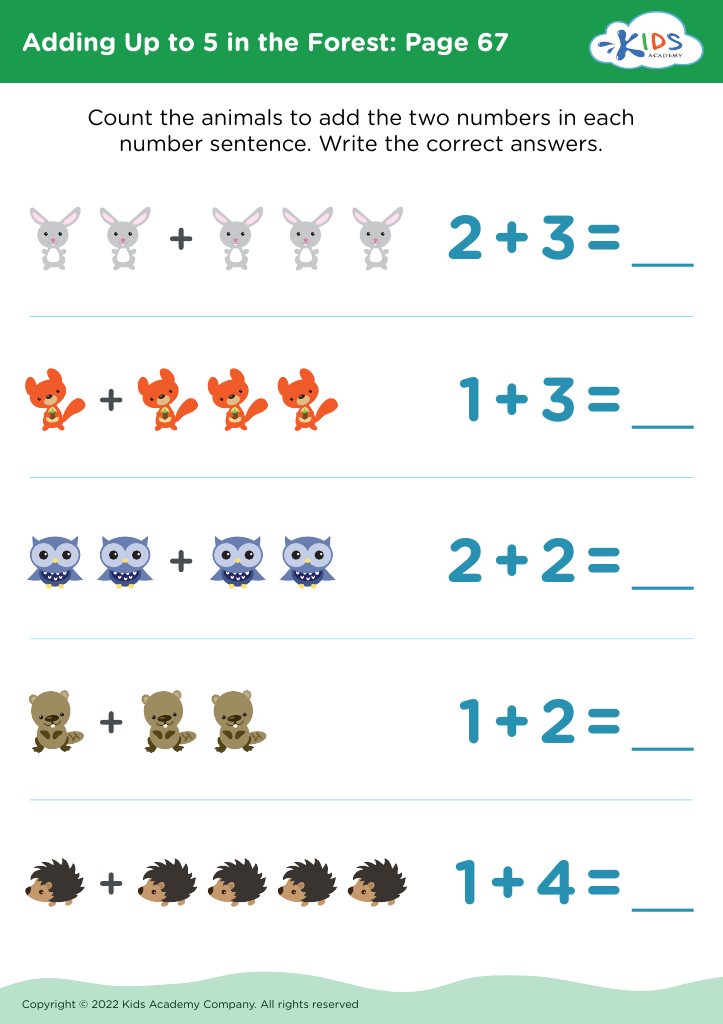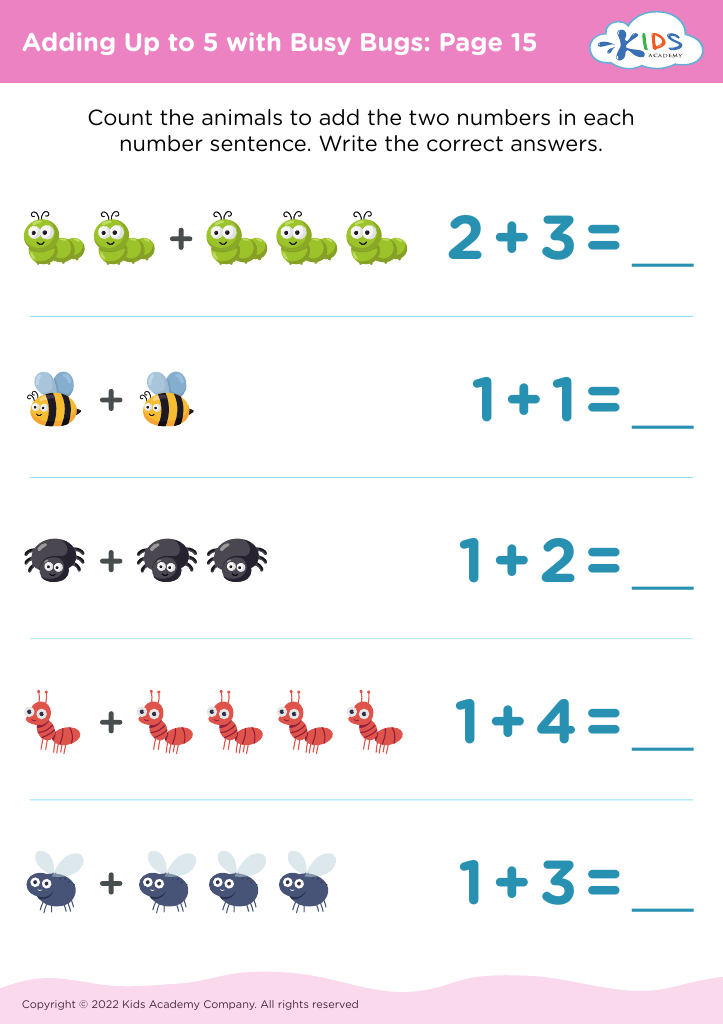Addition practice for young learners, focusing on adding up to 5, is fundamental for several reasons. Firstly, mastering basic addition is an essential building block of mathematics. When children can confidently add numbers up to 5, they develop essential numeracy skills that form the groundwork for more complex mathematical concepts they will encounter later on.
Furthermore, addition practice promotes cognitive development. Engaging in this type of mathematical practice enhances problem-solving abilities, logical reasoning, and critical thinking skills. These cognitive benefits extend beyond math and help children in a variety of academic disciplines and in everyday decision-making.
It also fosters a sense of confidence and achievement in young learners. Successfully solving addition problems showcases their progress and boosts their self-esteem, making them more eager to tackle challenging tasks. This early confidence in math can set a positive attitude toward the subject that persists as they grow older.
Additionally, practicing addition encourages attention to detail and improves concentration and memory skills. Consistent practice helps solidify their understanding and retention, creating a strong mental foundation.
Ultimately, prioritizing addition practice for ages 4-7 ensures that children receive the support they need in these crucial early years, setting them up for academic success and a lifelong appreciation for mathematics.










%20(1).jpg)













